



ORGANS OF PARIS © 2026 Vincent Hildebrandt HOME ALL ORGANS

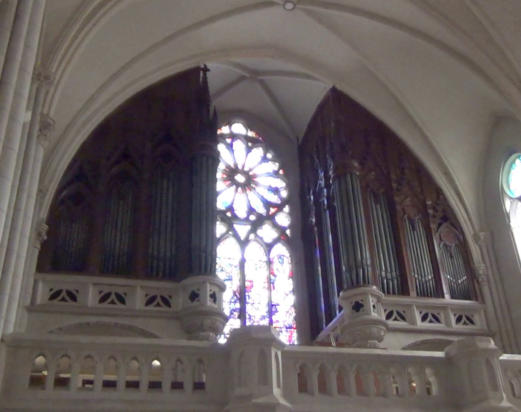


In 1923, Father Daniel Brottier became in
charge of the Orphans of Auteuil and decided to
build a chapel when he had no funds and
Auteuil's work was in a precarious financial
situation. A benefactor contributed the
necessary money to start the work. The chapel,
designed by architects Henri Chailleux father
and son, is in neo-Gothic style. It is inspired by
the Sainte Chapelle.
E1
The instrument was built in 1930-1931 by Abbey in collaboration
with Henri Libert who was responsible for the artistic design. The
electropneumatic traction (with box chests patented by Casavant)
was designed on the plans and indications of Casavant, which was
totally innovative for the time. At that time, it allowed more than 80
combinations to be recorded.
The instrument was housed in a magnificent two-body buffet
designed by Rude and executed by Auteuil's apprentices.
Today, the instrument is silent and replaced by an electronic organ.
Inauguration de l'orgue électrique de l'église Sainte-Thérèse à Auteuil
(1931)
Un très grand merci à Olivier Geoffroy pour ces précieuses
informations.
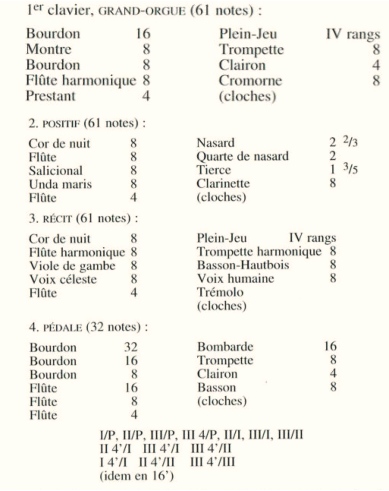
1931 - Abbey (1)
III/43 (33) - electro-pneumatical traction
(muet/silent)
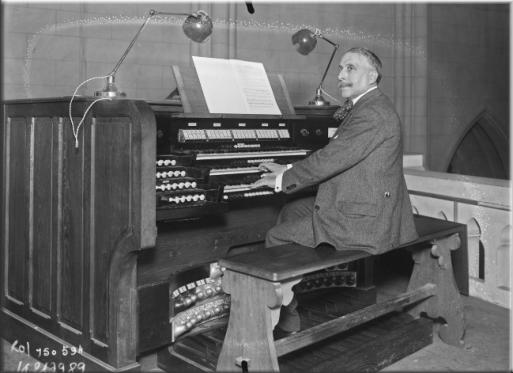
Henri Libert on the Abbey-organ of the chapelle des Orphelins
apprentis d'Auteuil
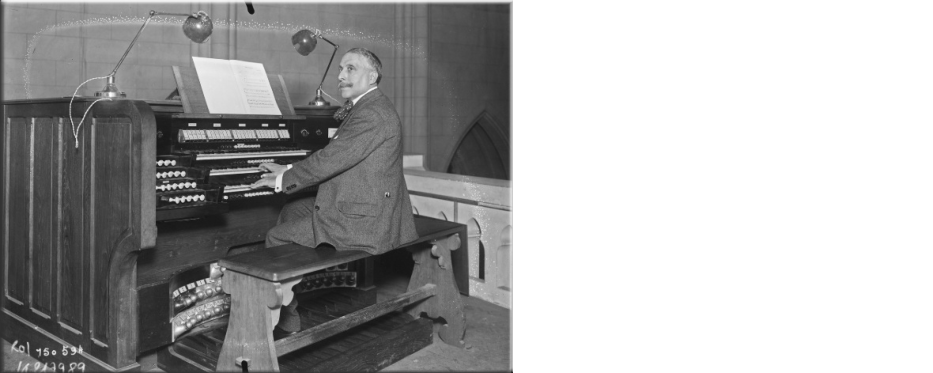
Organs of Paris
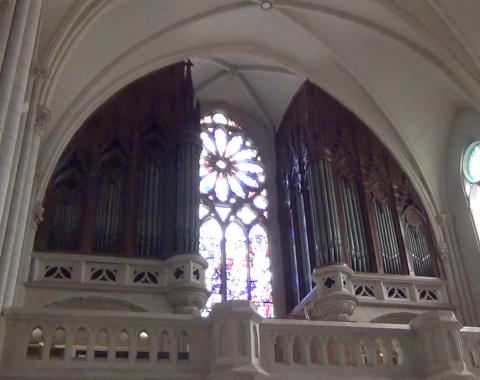
ORGANS OF PARIS © 2026 Vincent Hildebrandt ALL ORGANS
1931 - Abbey (1)
III/43 (33) - electro-pneumatical traction
(muet/silent)
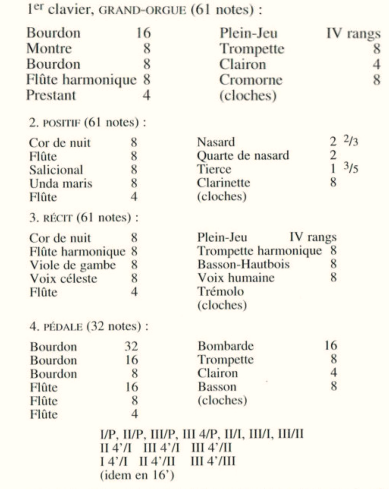
E1
The instrument was built in 1930-1931 by Abbey in
collaboration with Henri Libert who was responsible for the
artistic design. The electropneumatic traction (with box
chests patented by Casavant) was designed on the plans and
indications of Casavant, which was totally innovative for the
time. At that time, it allowed more than 80 combinations to
be recorded.
The instrument was housed in a magnificent two-body buffet
designed by Rude and executed by Auteuil's apprentices.
Today, the instrument is silent and replaced by an electronic
organ.
Inauguration de l'orgue électrique de l'église Sainte-Thérèse à
Auteuil (1931)
Un très grand merci à Olivier Geoffroy pour ces précieuses
informations.






















